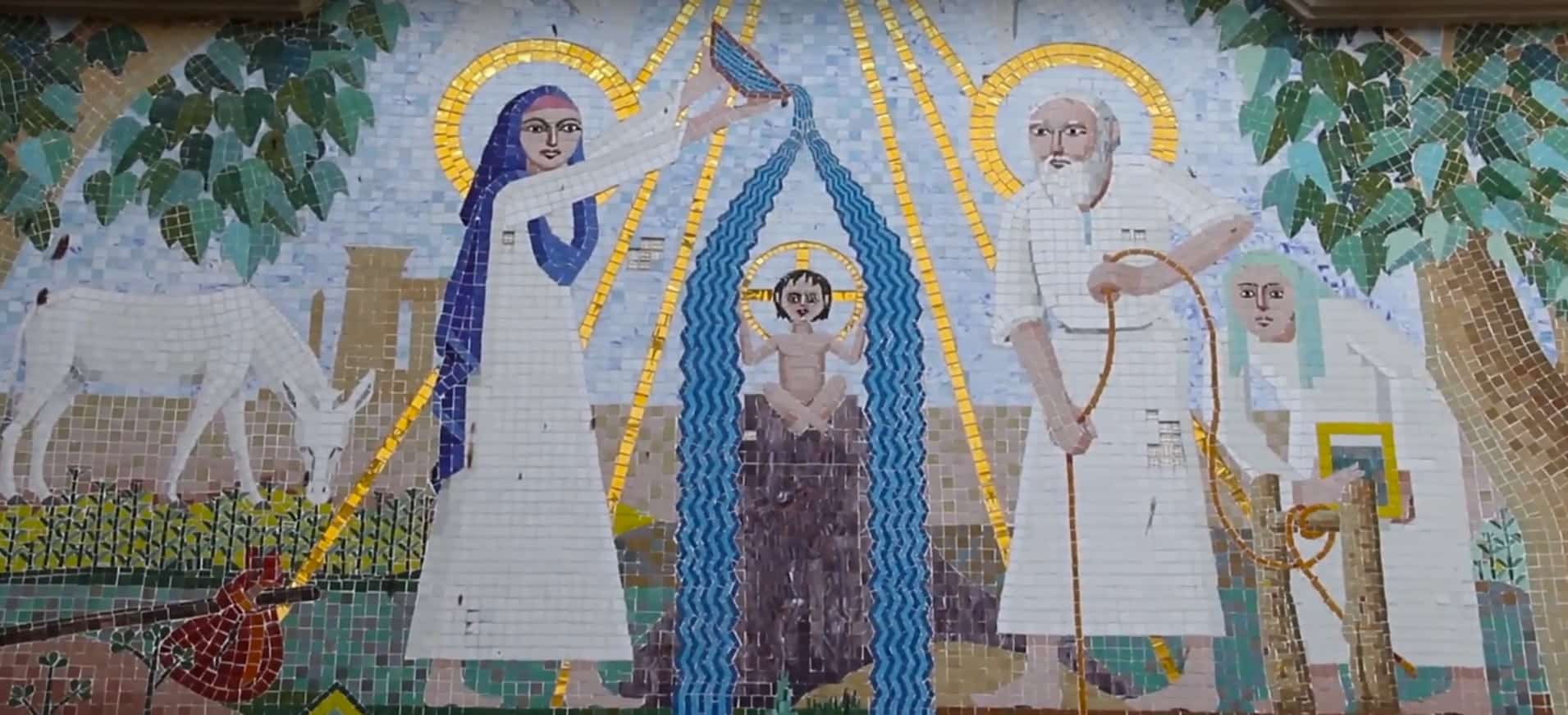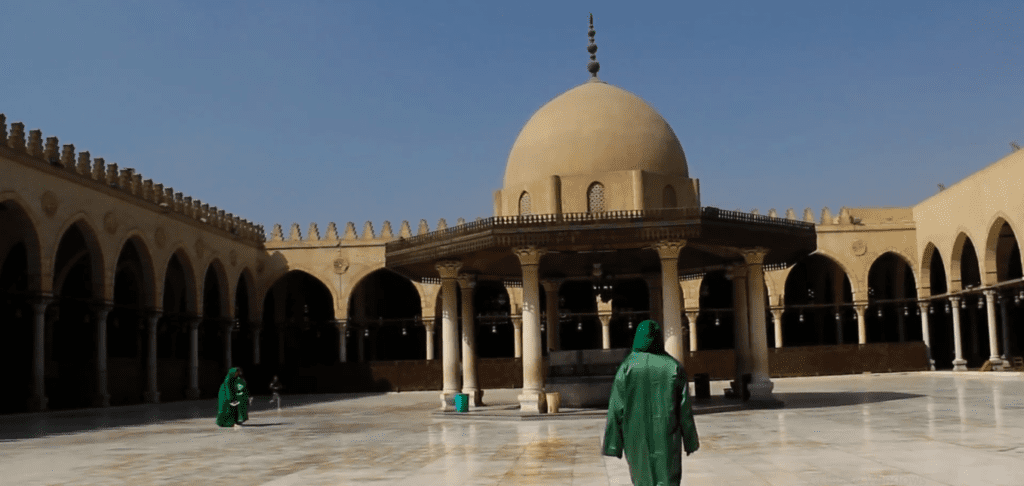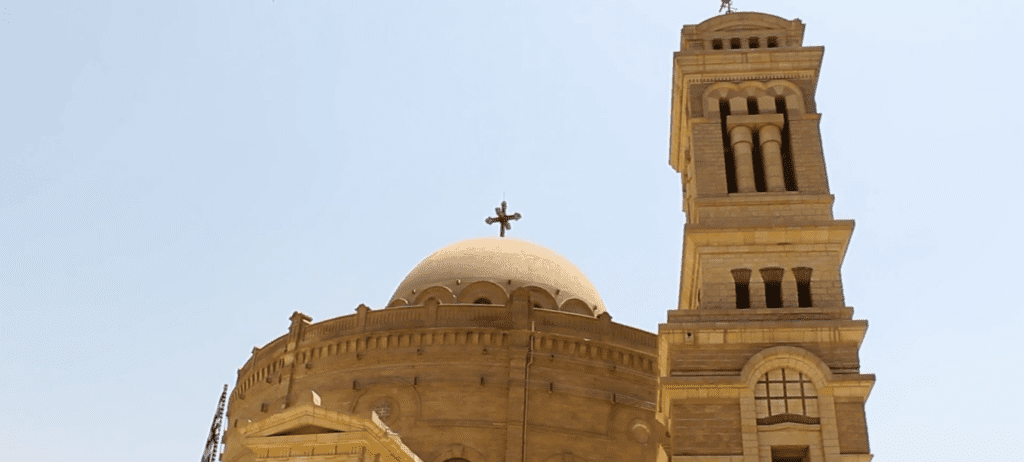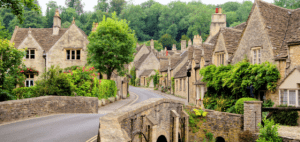Religious Community, Cairo, Egypt

Updated On: March 29, 2024 by Ciaran Connolly
Cairo, the vibrant capital of Egypt, is a bustling metropolis and a melting pot of diverse cultures, traditions, and religions. Home to millions of people, Cairo’s religious landscape is as varied and complex as its history. From ancient Egyptian beliefs to Islam, Christianity, and Judaism, the city embodies a tapestry of religious communities that have coexisted for centuries, shaping its identity and character. In this article, we delve into the rich fabric of the religious community in Cairo, exploring its history, significance, and contemporary dynamics.
Ancient Roots and Traditions of Religious Community
The history of the religious community in Cairo can be traced back to ancient times, with Egypt being one of the cradles of civilization. Ancient Egyptians worshipped a pantheon of gods and goddesses, with elaborate rituals and temples dedicated to their deities. The remnants of this ancient religious heritage can still be seen in Cairo’s archaeological sites, such as the awe-inspiring pyramids of Giza and the majestic temples of Luxor and Karnak.
Islam: The Dominant Faith

Islam has been central in shaping Cairo’s religious landscape since the Arab conquest of Egypt in the 7th century. Today, the majority of Cairo’s population identifies as Muslim, belonging primarily to the Sunni branch of Islam. With their intricate architecture and towering minarets, Mosques punctuate the cityscape, serving as places of worship and community hubs.
One of Cairo’s most iconic landmarks is the Al-Azhar Mosque, founded in 970 AD, making it one of the oldest universities in the world. Al-Azhar has long been regarded as a prestigious seat of Islamic learning, attracting scholars and students from across the Muslim world. Its influence extends beyond religious matters, encompassing diverse fields such as philosophy, science, and literature.
Christianity: A Living Legacy

Christianity also has deep roots in Cairo, dating back to the early centuries of the Common Era. The Coptic Orthodox Church, which traces its origins to the teachings of St. Mark the Evangelist, is the largest Christian denomination in Egypt. Copts, as adherents are known, constitute a significant religious minority in Cairo and maintain a vibrant presence in the city.
The Coptic community has preserved its rich religious heritage through its churches, monasteries, and traditions. The Hanging Church, located in the heart of Old Cairo, is one of Egypt’s oldest and most revered Coptic churches. Its name derives from its location above the gatehouse of the Babylon Fortress, giving it the appearance of “hanging” over the ancient ruins.
Judaism: A Tale of Resilience
While the Jewish community in Cairo is much smaller than it once was, it has a storied history that dates back millennia. Jews have lived in Egypt since biblical times, with Cairo being home to one of the oldest Jewish communities in the world. Despite facing challenges and periods of persecution, Jewish Cairo thrived for centuries, contributing to the city’s cultural and economic life.
The Ben Ezra Synagogue, located in the historic Jewish quarter of Cairo, is a testament to the enduring presence of Judaism in the city. Believed to stand on the site where baby Moses was found among the reeds, the synagogue is steeped in symbolism and history. Today, it serves as a focal point for Cairo’s Jewish community and a reminder of their resilience.
Interfaith Harmony and Coexistence of Religious Community
Despite their differences, Cairo’s religious communities have a long history of coexistence and mutual respect. Interfaith dialogue and cooperation are encouraged and integral to the city’s social fabric. Muslims, Christians, and Jews often participate in joint religious ceremonies, cultural events, and charitable initiatives, fostering understanding and solidarity among diverse faith groups.
The Egyptian government, recognizing the importance of religious diversity, has taken steps to protect the rights of religious minorities and promote tolerance. Places of worship are afforded legal protection, and discrimination based on religion is prohibited by law. Additionally, initiatives that foster interfaith dialogue and promote religious pluralism receive support and encouragement from both governmental and non-governmental organizations.
Challenges and Opportunities of Religious Community
Despite the rich tapestry of the religious community in Cairo, challenges persist. Socioeconomic disparities, political instability, and extremist ideologies pose threats to spiritual harmony and coexistence. Instances of sectarian violence and discrimination underscore the need for continued efforts to promote tolerance and understanding among religious communities.
However, amidst these challenges lie dialogue, reconciliation, and collaboration opportunities. Civil society organizations, religious leaders, and grassroots initiatives are crucial in fostering interfaith harmony and addressing communal tensions. By promoting empathy, respect, and cooperation, Cairo can build a more inclusive and peaceful society where all religious communities can thrive.
Must-Visit Attractions for Every Traveler
Cairo is a city brimming with historical, cultural, and architectural wonders. Here are more attractions to explore while visiting Cairo:
- Egyptian Museum: Home to one of the world’s most extensive collections of ancient Egyptian artefacts, the Egyptian Museum is a must-visit for history enthusiasts. Marvel at treasures such as the golden mask of Tutankhamun, mummies, statues, and hieroglyphic tablets that offer a glimpse into Egypt’s rich past.
- Islamic Cairo: Explore the narrow alleyways and bustling markets of Islamic Cairo, where you’ll encounter magnificent mosques, madrasas, and historic monuments. Highlights include the Sultan Hassan Mosque, Al-Muizz Street, Khan El Khalili Bazaar, and the Citadel of Saladin, which offers panoramic city views.
- Cairo Tower: For breathtaking views of Cairo’s skyline, head to the Cairo Tower. Standing 187 meters tall, this iconic landmark offers observation decks where visitors can enjoy panoramic vistas of the city and the Nile River.
- Khan El Khalili: Lose yourself in the labyrinthine lanes of Khan El Khalili, Cairo’s oldest and most famous bazaar. Here, you can haggle for spices, textiles, jewellery, and souvenirs while soaking in the vibrant atmosphere of this bustling marketplace.
- Al-Azhar Park: Escape the hustle and bustle of the city at Al-Azhar Park, a serene oasis nestled in the heart of Islamic Cairo. Stroll through landscaped gardens, enjoy scenic views of the historic district, and relax in shaded pavilions while savouring traditional Egyptian cuisine.
- The Gayer-Anderson Museum: Step back in time at the Gayer-Anderson Museum, housed within two historic mansions in Islamic Cairo. This beautifully preserved museum showcases a rich collection of Islamic art, furniture, and artefacts, offering insight into Cairo’s cultural heritage.
- Nilometer: Discover an ancient hydraulic structure used to measure the water level of the Nile River at the Nilometer on Rhoda Island. This fascinating monument dates back to pharaonic times and provides a glimpse into Egypt’s agricultural practices and religious beliefs.
- Coptic Cairo: Explore the rich heritage of Egypt’s Christian community in Coptic Cairo, where ancient churches, monasteries, and synagogues abound. Highlights include the Hanging Church, St. Sergius and Bacchus Church, and the Coptic Museum, which houses a remarkable collection of Christian artefacts.
- Sultan Qalawun Complex: Admire the architectural splendour of the Sultan Qalawun Complex, an impressive ensemble of mosques, mausoleums, and madrasas dating back to the Mamluk era—Marvel at the intricate designs and decorative motifs that adorn these historic buildings.
- Manial Palace and Gardens: Step into the lavish world of Egyptian royalty at the Manial Palace and Gardens, a stunning architectural masterpiece on Rhoda Island. Explore opulent halls, lush gardens, and serene courtyards adorned with exquisite artwork and furnishings.
These are just a few attractions awaiting visitors in Cairo, each offering a unique glimpse into the city’s rich history, culture, and heritage. Whether you’re fascinated by ancient civilizations, Islamic architecture, or vibrant marketplaces, Cairo captivates every traveller’s imagination.
The Ideal Season to Experience Egypt’s Capital
The perfect time to visit Cairo is during the cooler months, which extend from October to April. The weather is mild and comfortable during this period, with temperatures ranging from around 15°C to 30°C. This makes it ideal for exploring Cairo’s myriad attractions, from ancient monuments like the pyramids and the Sphinx to vibrant markets, mosques, and museums.
Additionally, this time of year coincides with the city’s peak tourist season, offering an array of cultural events and festivals in which to immerse oneself. Whether strolling along the banks of the Nile River or marvelling at the historical wonders of Islamic Cairo, visitors can enjoy Cairo’s rich tapestry of history, culture, and cuisine in the pleasant temperatures of the cooler months.
Conclusion
In Cairo, religion is not just a matter of belief but a source of identity, culture, and heritage. The city’s religious communities, with their diverse traditions and practices, form the bedrock of its social fabric. From the majestic mosques and ancient churches to the historic synagogues, Cairo’s religious landmarks bear witness to centuries of shared history and mutual influence.
As Cairo navigates the complexities of the modern world, preserving its religious diversity and promoting interfaith harmony remains paramount. By embracing dialogue, tolerance, and respect, Cairo can continue to be a shining example of coexistence and solidarity in an increasingly interconnected world. In celebrating its religious plurality, Cairo honours its past, shapes its present, and paves the way for a more harmonious future.






